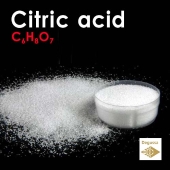
 3
3




 2
2




With appropriate microbes, minerals and organic matter, there is no need for pesticides or herbicides.
 3
3




With appropriate microbes, minerals and organic matter, there is no need for pesticides or herbicides.
 2
2




Faye Streiff wrote:The plants that are commonly thought to love acid soils, usually just need a more fungal dominant soil (blueberries for instance). Rotted tree bark, rotten leaves will do that.
 2
2




Colleen Barclay wrote:Ok I'm a newbie so go easy on me..I want to increase the acidity in a strip of soil along the side of my yard so that I can plant some things there that like it about 1-1.5pH lower than it currently is (bring down to 5.5-6.5 range). I'm thinking to plant those more acid-loving plants sometime next year. I've done a bit of reading about adding elemental sulfur to the soil to lower pH over longer periods.
My question is about onions, and to a lesser extent maybe garlic. They contain sulfur compounds so can those be used the same way to lesser effect? When I use an onion for cooking, I usually only use half and I haven't been composting the remainder (I do compost other things).




I want to be 15 again …so I can ruin my life differently.
 2
2




Dr Ingham explained the damage of sulfur to the soil and the better way to get the soil pH right
Invasive plants are Earth's way of insisting we notice her medicines. Stephen Herrod Buhner
Everyone learns what works by learning what doesn't work. Stephen Herrod Buhner
 2
2




 2
2





| I agree. Here's the link: http://stoves2.com |



